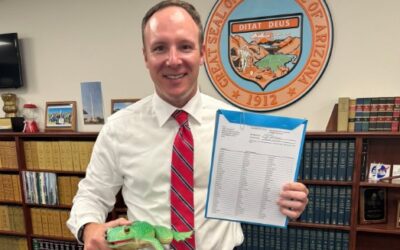By Jonathan Eberle |
A meeting on September 3rd brought together families, law enforcement officials, prosecutors, tribal leaders, and child welfare advocates to address systemic failures in the state’s child welfare system. Recent tragedies involving children in group homes have drawn attention to gaps in oversight, including inconsistent coordination with law enforcement when youth run away from facilities, breakdowns in communication with tribal governments, and limited transparency around licensing actions.
Now, following the stakeholder meeting convened by State Senator Carine Werner (R-LD4), the Arizona Department of Child Safety (DCS) has committed to a series of reforms aimed at strengthening oversight and improving child protection. The announced set of immediate measures from DCS include:
- Clearer notification rules: Drafting changes to require group homes to alert DCS and law enforcement promptly when a child leaves placement.
- Stronger law enforcement partnerships: Sharing group home locations with local police to encourage proactive engagement with staff and residents.
- Critical information packets: Creating standardized “face sheets” for law enforcement to use when a child runs from a facility.
- Renewed tribal engagement: Re-establishing standing meetings with the San Carlos Apache Tribe and extending outreach to other tribal nations.
- Licensing transparency: Developing a process to share licensing actions with tribes that contract with DCS-approved facilities.
Senator Werner emphasized that while the commitments mark progress, long-term accountability remains essential.
“This is a step in the right direction, but it can’t be the last,” Werner said. “Arizona’s children deserve a system that responds quickly, communicates clearly, and puts their safety first. I will keep working with stakeholders and holding DCS accountable until we create a system that best serves families and kids throughout Arizona.”
Werner credited the families, law enforcement agencies, and tribal leaders who participated in the discussion, noting their input directly shaped the reforms. The changes come amid growing scrutiny of Arizona’s child welfare practices, with lawmakers and community advocates pushing for stronger safeguards to protect vulnerable children in state care.
Jonathan Eberle is a reporter for AZ Free News. You can send him news tips using this link.








